23+ SAMPLE Consulting Contract Proposal
-
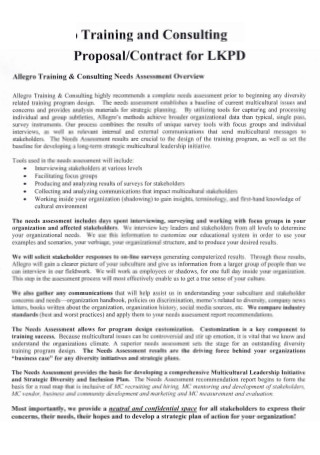
Training and Consulting Contract Proposal
download now -
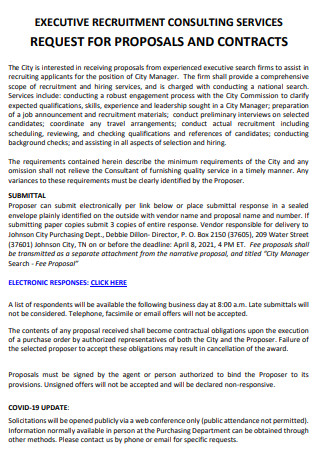
Executive Recruitment Consulting Contract Proposal
download now -
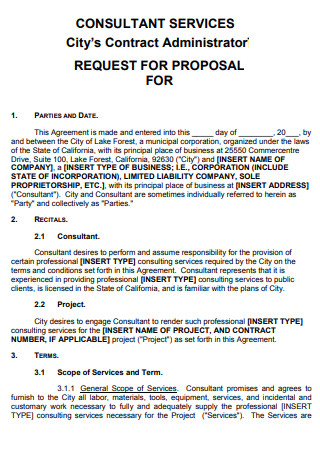
Consulting Contract Proposal
download now -
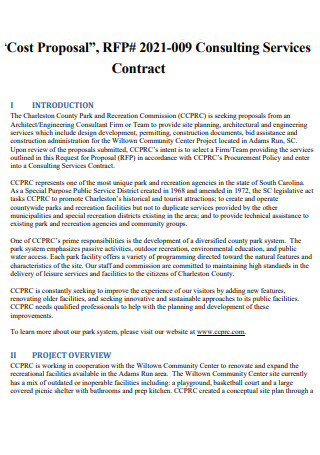
Sample Consulting Contract Proposal
download now -
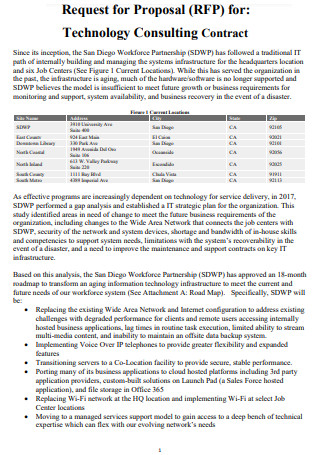
Technology Consulting Contract Proposal
download now -
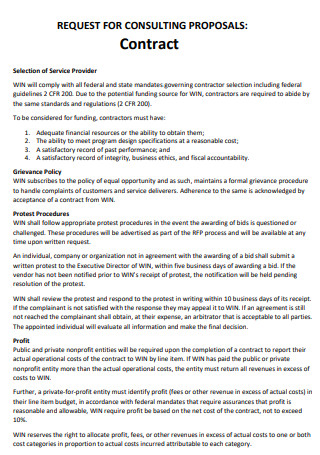
Request for Consulting Contract Proposal
download now -
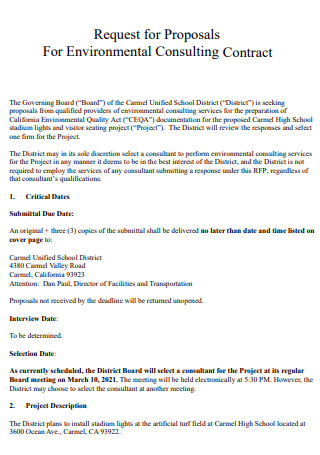
Environmental Consulting Contract Proposal
download now -
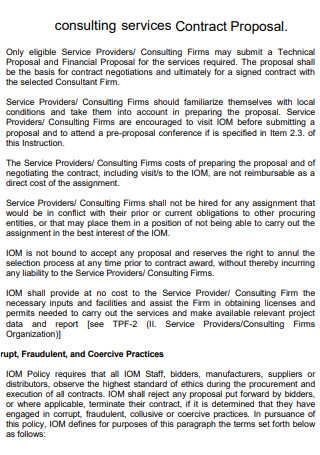
Consulting Service Contract Proposal
download now -
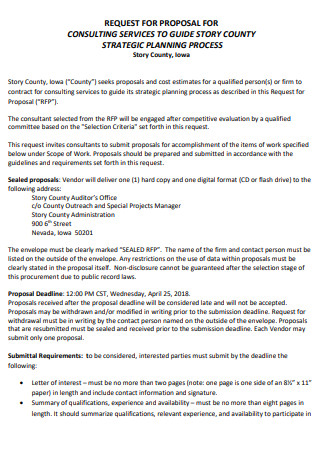
Consulting Strategic Contract Proposal
download now -
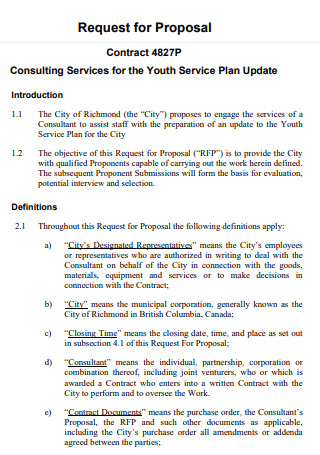
Consulting Contract Proposal for Youth Service
download now -
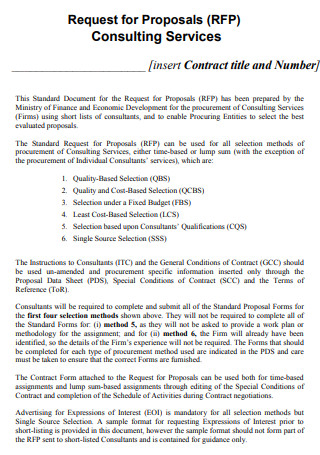
Consulting Contract Proposal Example
download now -
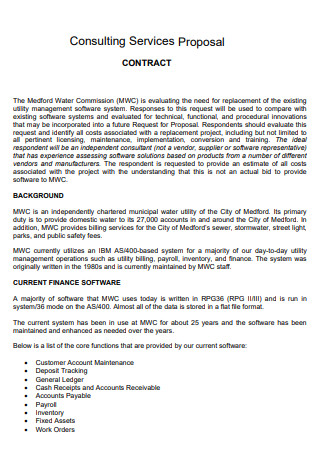
Consulting Contract Proposal Template
download now -
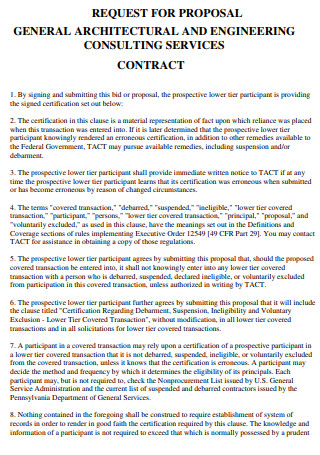
Engineering Consulting Contract Proposal
download now -
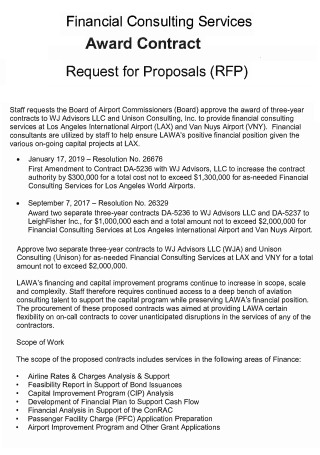
Financial Consulting Contract Proposal
download now -
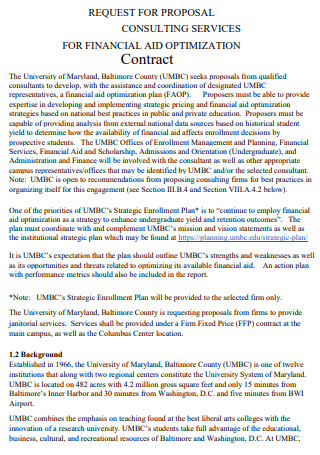
Optimization Consulting Contract Proposal
download now -
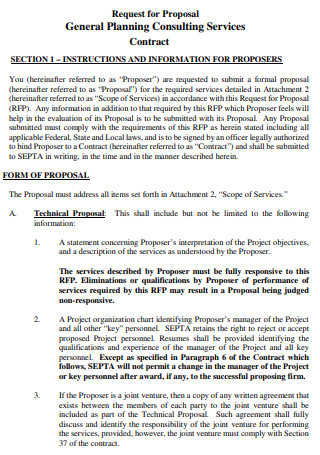
Planning Consulting Contract Proposal
download now -
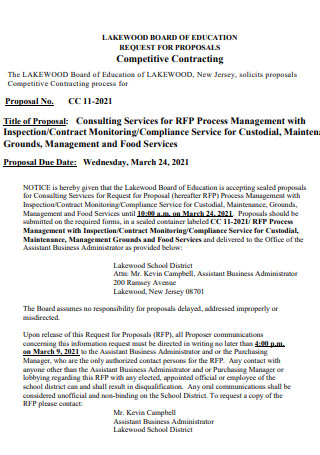
Competitive Consulting Contract Proposal
download now -
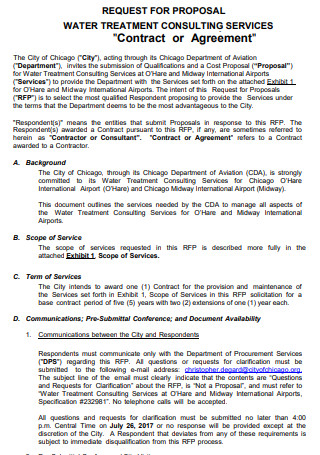
Water Treatment Consulting Contract Proposal
download now -
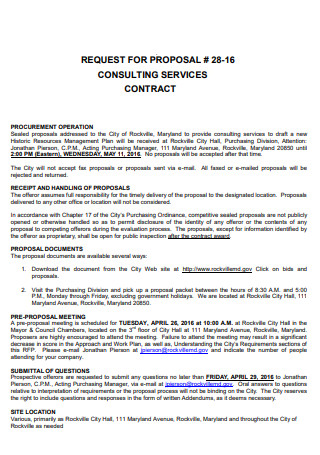
Draft Consulting Contract Proposal
download now -
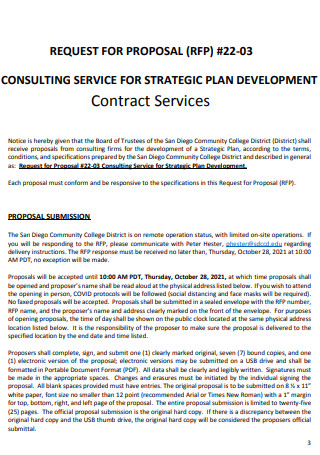
Development of Consulting Contract Proposal
download now -
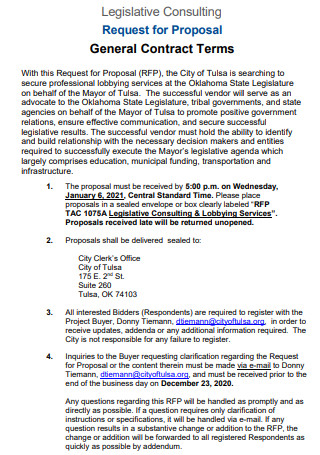
Legislative Consulting Contract Proposal
download now -
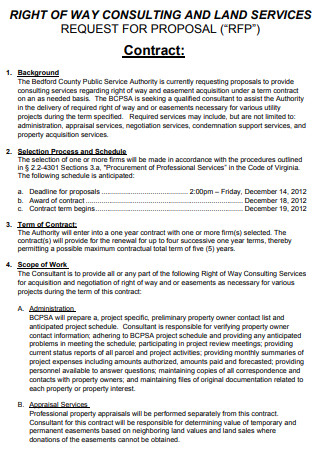
Land Consulting Contract Proposal
download now -
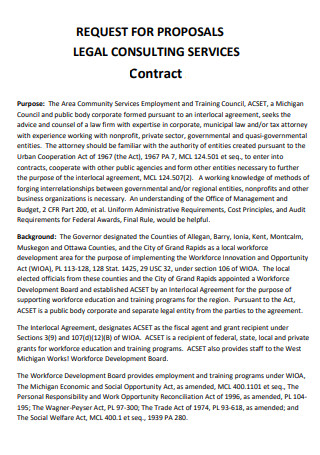
Legal Consulting Contract Proposal
download now -
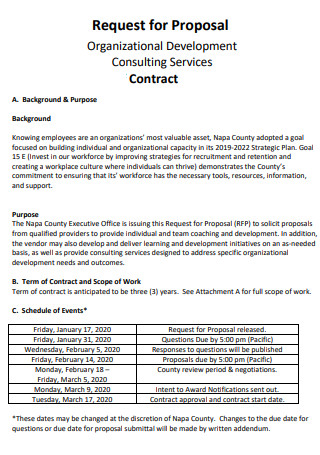
Organizational Consulting Contract Proposal
download now
FREE Consulting Contract Proposal s to Download
23+ SAMPLE Consulting Contract Proposal
What Is a Consulting Contract Proposal?
What Are the Benefits of a Consulting Contract Proposal?
What Are Some Guidelines in Consulting Contract Proposal?
Components of a Consulting Contract Proposal
How to Write a Consulting Contract Proposal
FAQs
How do I protect myself as the consultant?
How do consultant contracts work?
Can you be sued as a consultant?
What Is a Consulting Contract Proposal?
When a consulting contract proposal is delivered to a potential client, it works as a sales pitch for the consulting firm involved. It defines how the consultant would approach a certain project and what results they would expect. A consulting proposal is also a marketing document that demonstrates why the consultant’s expertise and talents make him or her the most qualified candidate for the task in question. In some cases, consultants would offer proposals after being informed by a prospective customer on the project needs. Alternatively, the submission may be in response to a formal Request for Proposals (RFP) announcement (RFP). The proposal should be compelling, physically appealing, and customized to meet the specific requirements of the client.
Other templates are available on our website, and you can use them whenever you need them. They are as follows: vehicle purchase agreement, stock purchase agreement, business associate agreement, affiliate agreement, refund receipts, investment receipts, bookkeeping agreement, labour contract, construction bid form, disclosure agreement and other similar templates are available.
What Are the Benefits of a Consulting Contract Proposal?
A consultant may already have a number of clients under his or her management. You may have a conversation with a client about a job and come to an immediate agreement on the job. Although it may be tempting to take the easy way out and simply shake hands, this will not be the best course of action in this scenario. Create a consultation template for your proposal in order to maintain communication between you and your client clear. The agreement will include all of the specifics of your arrangement in order to avoid any future disagreements. When you and your client sign the paper, it will become a legally enforceable agreement between you and your client. It would also serve as a crucial point of reference for you during the process. The following are some of the advantages of creating and using such a template:
1. Utilize it to Define Your Scope of Work
When presenting your services to a client, discuss the various jobs you will perform. Certain clients may even provide you with a lengthy list of tasks to complete during the course of the project. If you have a proposal, you can include a list of all these duties to define your scope of work.
2. Utilize it to Market Your Services
A well-written consulting proposal will act as more than a legal document. Additionally, you can utilize it as a marketing tool. Consult with your client regarding the paper. Then you can emphasize the duties you want to complete in order to promote your services. Additionally, you can advise the client if you possess additional abilities that are applicable to the job.
3. Utilize it to Set the Client’s Expectations and Duties
Bear in mind that when creating a template, you must keep the client in mind. From the start, you must establish all of the client’s expectations. Make a note of them all in your paper to prevent future disappointments. A well-written proposal will include your consultant work specifications. Additionally, it will outline your client’s responsibilities. Your client should be able to grasp what he or she needs to do for the project after reading the document.
4. Utilize it to Develop Rapport With Your Consumer
This is particularly advantageous if you operate as an independent consultant. It is critical to create a sample consulting proposal for your clients. It might assist you in developing a stronger relationship with your clients. Additionally, your client may utilize the document for other purposes. He or she may require it to establish that you are not a regular employee of the business.
What Are Some Guidelines in Consulting Contract Proposal?
Writing an effective consulting contract proposal template is critical because it will enable you to gain the approval of prospective clients with whom you may engage. Be precise about the type of consulting services you intend to offer. Different businesses and domains of expertise demand consultants to possess specialized knowledge and abilities. As with a work proposal template, ensure that you explain your offerings in such a way that your clients see the benefits of partnering with you. Your offer or proposal should highlight your skills and how they will benefit your clients. In addition to preparing a grant proposal template, you should ensure that your consulting services are presented in a realistic and timely manner. Always include quantifiable service details and those that you can deliver on schedule.
Components of a Consulting Contract Proposal
The most effective consulting contract proposals are structured in an appealing and logical manner. We’ll cover the anatomy of a well-written consulting proposal in this section.
How to Write a Consulting Contract Proposal
Start by looking at our template consulting proposal and feel free to download it if you like the format. Alternatively, you can use it as a starting point for creating your own template. If you’re going to create a custom template, you’re better off starting from scratch. Although the techniques are straightforward, producing the document requires considerable time and work. You must conduct extensive research and carefully consider how to portray the material. Let’s take a look at how to craft a winning proposal.
-
1. Communicate With Your Client Face to Face or Over the Phone
Without first speaking with your prospective customer, you cannot prepare a successful consulting proposal. Make every effort to arrange for a phone call for this chat; if possible, meet in person. While an email is sufficient for getting to know your customer and their consultation needs, allowing them to see your face and/or hear your voice will assist you in establishing trust.
-
2. Recognize their Difficulties and Requirements
The more you comprehend your prospective client’s difficulties and pain areas, the more persuasive your proposal will be. While a consulting proposal template might assist in getting the job done, the information in your proposals should be customized for each client and their unique demands. Do not be afraid to follow up with extra phone calls or meetings in order to have a better understanding of your client and the services they require.
-
3. Inquire About Specifics
A successful proposal accurately portrays the project’s scope and specifics to ensure that all parties are on the same page. Don’t forget to inquire about the optimal timetable, budget, objectives, and outcomes for your client. These facts are critical for both marketing your services to a prospective client and providing your client with a better picture of how you two will operate together.
-
4. Concentrate on Customer Outcomes Rather than Consultant Input
While it may be tempting to focus exclusively on your credentials and experience, your consulting proposal should emphasize the benefits your customer will receive as a result of working with you. Provide as much detail as possible on the value and outcomes that your client can anticipate. Additionally, eschew clichés and generic vocabulary. Indeed, make an effort to utilize the same language they employed throughout your discussions; this will resonate with them and demonstrate that you listened.
-
5. Keep it Brief
When it comes to consulting proposals, quality trumps quantity by a long shot. Maintain a concise proposal in order to effectively define the project’s scope and expectations. Give your client no cause to abandon your proposal in favor of another consultant’s – instead, keep your proposal concise and interesting. To provide context, the typical length is one to two pages.
-
6. Solicit Feedback
A consultation proposal is a two-way street, which means that both parties should have input into its composition. Clarify any questions or concerns you have with your prospective client as you build your proposal. Send it to your client for review and feedback once completed.
A consulting contract proposal is a written document that details the nature, scope, and schedule of a consulting assignment. As with a Salesperson’s presentation to a prospect, a consulting proposal emphasizes the client’s problem and offers you, the consultant, as the solution. Having the ability to develop a short, clear consulting proposal can make or break your ability to convert prospective clients.
FAQs
How do I protect myself as the consultant?
Conduct a thorough discussion outlining your professional boundaries and request that your client do the same. Agree on working hours and response times, as well as on how calls, meetings, and Skype sessions will be scheduled.
How do consultant contracts work?
Consulting agreements are contracts that detail a consultant’s services. Consultants are self-employed. Rather than working with one company, they usually have several clients.
Can you be sued as a consultant?
To recover damages for personnel errors, lost productivity, or other losses, the customer could sue the consultant for damages.
Proposals are particularly important in marketing. With so many specializations, channels, deliverable types, and KPIs to track, you’ll need to establish expectations for the client relationship. A consulting contract proposal may include a description of your strategic framework, overarching goals, and possibly even the smaller milestones against which you wish to be measured.
